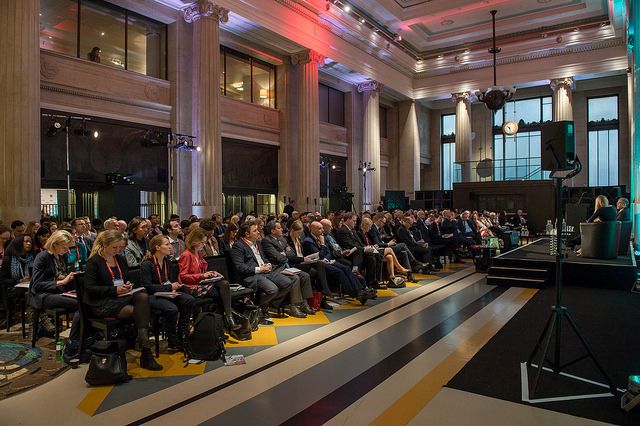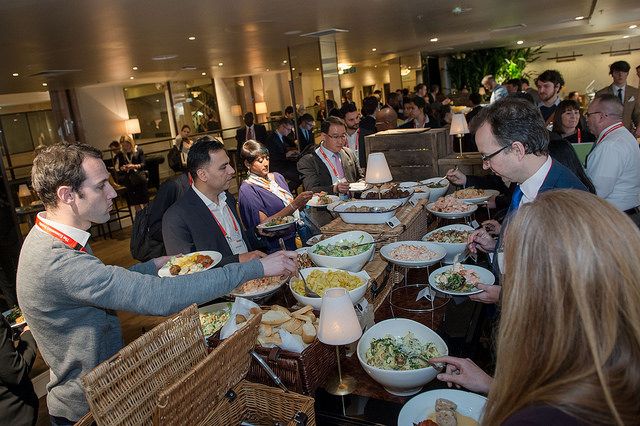The social lives of corporations

We get the services and products and, if we pay attention, we learn for sure which company offers them. We read newspaper and magazine stories, watch TV programmes and ads and so names of corporations, a sense of what is being said about them, what they do and what they are like, coalesce in a galaxy of references, inchoate, nebulous agglomerations of impressions, punctuated by bright clear spots, the mega stars of the corporate world.
Some of the media coverage is distinctly critical and it may be that corporations as pariahs and failures, when they have breached our trust, when they have committed some particularly egregious act of deception or negligence make an even stronger mark on our mental world, albeit a negative one.
Inquisitive and purposeful, we could also search out and scrutinize company annual accounts, reports and press releases, check out scholarly analyses or visit industry fairs. Many of us work for them, or know people who do.
In all of these ways, corporations are part of our everyday life, sometimes acknowledged, sometimes ignored, but inextricably, irrevocably part of how we live and get things done.
For the interested outsider, there is, I learned, another, more intimate and direct occasion when corporations actively, pointedly tell stories about themselves, trying to connect with industry peers, clients, and the public at large.
At showcase events and conferences, often complimentary, we are invited on their turf, to listen to presentations about their values and what they have to offer, to query and engage, to try out products and witness demonstrations. Prominent clients and sponsors weigh in, explaining how they have been able to overcome obstacles and resolve problems using a particular technological solution on offer.

Without a doubt, there is a clear commercial rationale behind this. Prospective clients need to be identified, courted and convinced. Bringing many of them together in dignified, even luxurious surroundings combines efficiently requirements of scale and purposeful business development with the gentler arts of generous hospitality and the cultivation of relationships.

For the social scientist, the journalist, the curious citizen these are also occasions when we can ascertain clearly, distinctly, from close quarters and without unnecessary mediation, just how particular corporations want to see themselves and want us to see them. As with any social interaction, these are staged events, with a controlled and pre-approved mise-en-scène, smooth surfaces and rehearsed choreography. And yet. On such occasions the actual people who make up a corporation, often very senior executives and key decision makers are present in rooms that for a time can be places of significant encounter. If not all questions are likely to be answered, they can at least be asked.
There seems to be a new kind of necessity at work behind such efforts to reach out and, I’ve heard it said a few times, democratize. Successful platforms draw into their space millions of participants, generating network effects through interaction and exchange. Customer relations systems now aspire to immediacy, a fluidity of service between channels of delivery that requires access to our digital footprint and trust. A certain lowering of barriers, favouring horizontal over hierarchical relationships inside the corporation and outside it seems to be the result.
What we make of this moment of necessity, when democracy is suddenly part of what corporations say they want, is up to us. Critically, these are occasions when we are being informed. We know in general that massive technological change is under way, a veritable (fourth) industrial revolution. At such gatherings we may glimpse at where and how digital tentacles are about penetrate, transform, reset the terms of our work and consumption patterns.
Astute about the need to create quality relationships with their customers, cutting edge companies are responding to the new competitive forces by striving to create, as they say, amazing micro-moments of magic-like delivery of service in order to keep our loyalty. Pleasantries and politeness can be raised to a new level: e-mail birthday greetings from the bank and e-mail messages of apology for an unexpected delay from the airline become routine, for instance.
Astute about the need to create quality relationships with their customers, cutting edge companies are responding to the new competitive forces by striving to create, as they say, amazing micro-moments of magic-like delivery of service in order to keep our loyalty. Pleasantries and politeness can be raised to a new level: e-mail birthday greetings from the bank and e-mail messages of apology for an unexpected delay from the airline become routine, for instance.
Astute about the need to create quality relationships with their customers, cutting edge companies are responding to the new competitive forces by striving to create, as they say, amazing micro-moments of magic-like delivery of service in order to keep our loyalty. Pleasantries and politeness can be raised to a new level: e-mail birthday greetings from the bank and e-mail messages of apology for an unexpected delay from the airline become routine, for instance.
Astute about the need to create quality relationships with their customers, cutting edge companies are responding to the new competitive forces by striving to create, as they say, amazing micro-moments of magic-like delivery of service in order to keep our loyalty. Pleasantries and politeness can be raised to a new level: e-mail birthday greetings from the bank and e-mail messages of apology for an unexpected delay from the airline become routine, for instance.
Astute about the need to create quality relationships with their customers, cutting edge companies are responding to the new competitive forces by striving to create, as they say, amazing micro-moments of magic-like delivery of service in order to keep our loyalty. Pleasantries and politeness can be raised to a new level: e-mail birthday greetings from the bank and e-mail messages of apology for an unexpected delay from the airline become routine, for instance.
Astute about the need to create quality relationships with their customers, cutting edge companies are responding to the new competitive forces by striving to create, as they say, amazing micro-moments of magic-like delivery of service in order to keep our loyalty. Pleasantries and politeness can be raised to a new level: e-mail birthday greetings from the bank and e-mail messages of apology for an unexpected delay from the airline become routine, for instance.
Dr Liliana Pop is the organiser of the London entrepreneurial meetup group. An independent consultant based in London she focuses on training and development.
https://www.linkedin.com/in/lilianapopconsulting/
www.lilianapopconsulting.com



